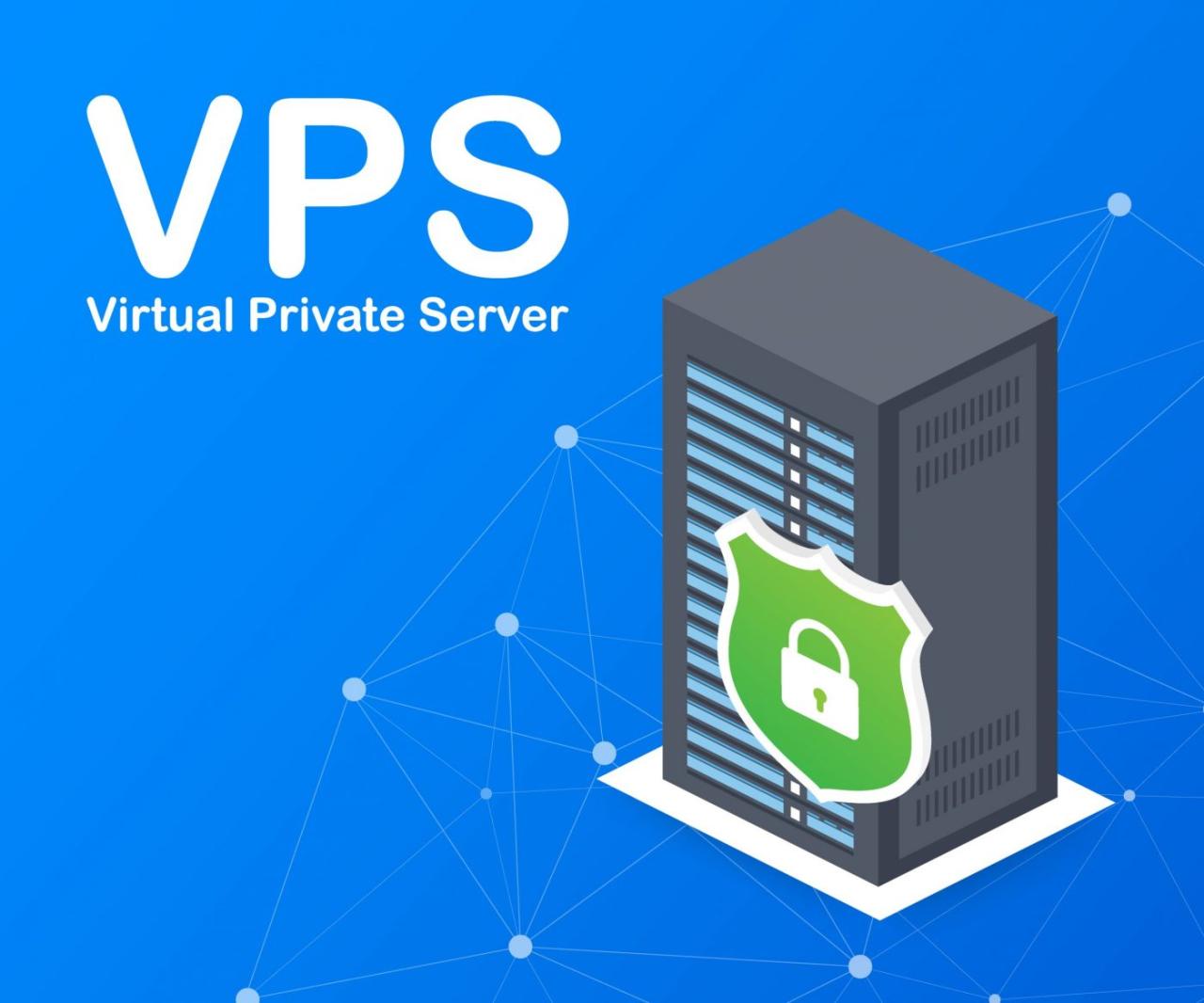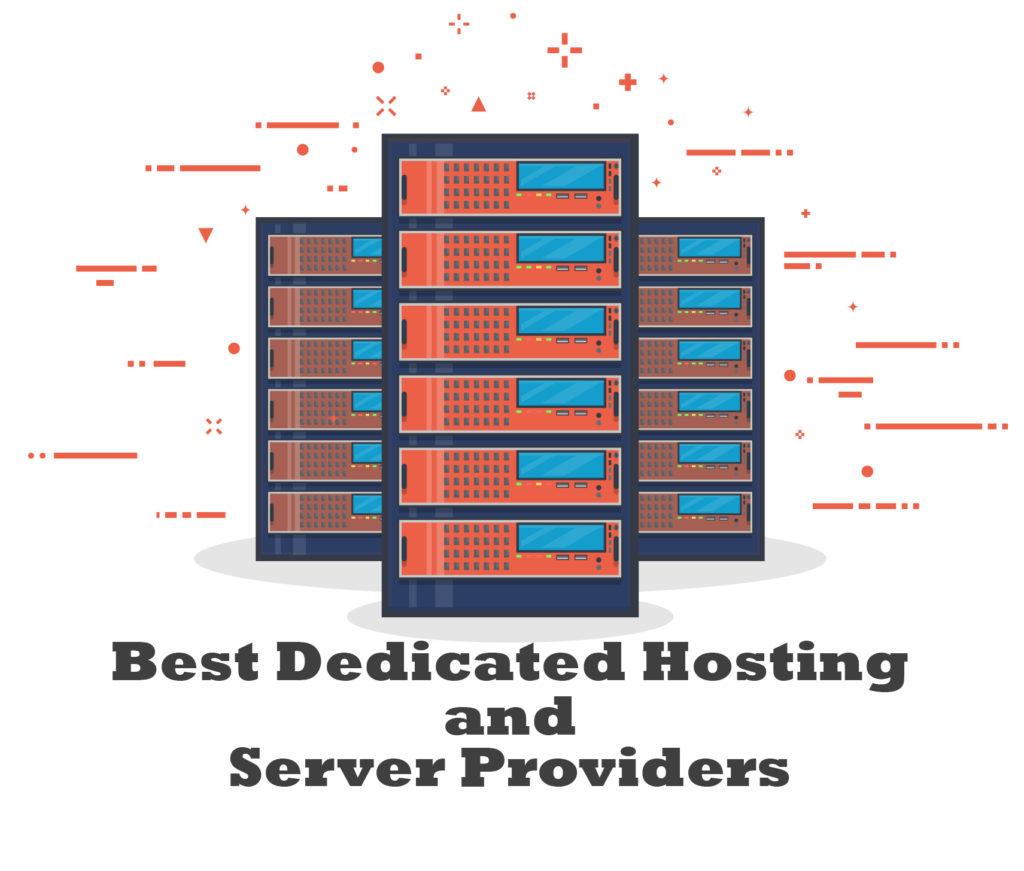VPS, or Virtual Private Server, sets the stage for this enthralling narrative, offering readers a glimpse into a world where physical limitations are transcended and digital possibilities flourish. This guide delves into the intricacies of VPS technology, providing a comprehensive understanding of its architecture, benefits, and applications.
From the fundamentals of virtualization to the nuances of choosing the right provider, we explore the key aspects of VPS, empowering you with the knowledge to leverage its power for your own endeavors. Whether you’re a seasoned developer, an ambitious entrepreneur, or a curious tech enthusiast, this exploration of VPS will illuminate a path towards greater online control and scalability.
What is a VPS?

A Virtual Private Server (VPS) is a type of web hosting that provides a virtualized server environment. It’s essentially a virtual machine running on a physical server, giving you more control and resources than shared hosting.
VPS vs. Shared Hosting and Dedicated Servers
VPS offers a middle ground between shared hosting and dedicated servers. Here’s a comparison:
- Shared Hosting: Multiple websites share the same server resources. This is the most affordable option but offers limited control and performance.
- VPS: You get your own dedicated resources, like RAM, CPU, and disk space, within a virtualized environment. This provides better performance and security compared to shared hosting, with more control over your server environment.
- Dedicated Server: You get an entire physical server for your website. This is the most expensive option but provides the highest level of performance, control, and security.
VPS Use Cases
VPS is a popular choice for various websites and applications, including:
- High-traffic websites: VPS can handle a large number of visitors and requests, ensuring a smooth user experience.
- E-commerce stores: VPS provides the resources and security needed for processing online transactions and managing customer data.
- Resource-intensive applications: Applications that require significant processing power, such as gaming servers or video editing platforms, benefit from the dedicated resources of a VPS.
- Development and testing environments: VPS provides a secure and isolated environment for developers to test and deploy applications before going live.
Choosing the Right VPS Provider
Selecting the right VPS provider is crucial for ensuring optimal performance, reliability, and security for your website or application. A wide range of providers offer diverse plans and features, making it essential to carefully evaluate your specific needs and budget.
Factors to Consider When Choosing a VPS Provider
Choosing the right VPS provider involves considering several factors, each influencing your overall experience and satisfaction.
- Performance: This includes factors like CPU speed, RAM, storage capacity, and network bandwidth. These factors directly impact your website or application’s loading speed, responsiveness, and overall performance.
- Reliability: A reliable VPS provider guarantees high uptime, minimizing downtime and ensuring your website or application remains accessible to users. Look for providers with a proven track record of uptime and robust infrastructure.
- Security: A secure VPS provider implements robust security measures to protect your data and prevent unauthorized access. Features like firewalls, intrusion detection systems, and regular security updates are essential.
- Pricing: VPS plans vary in pricing based on resources, features, and provider. Compare prices from different providers to find a plan that fits your budget without compromising performance or security.
- Customer Support: Reliable customer support is crucial for resolving issues and receiving assistance when needed. Look for providers offering 24/7 support channels like live chat, phone, and email.
- Scalability: As your website or application grows, you may need to upgrade your VPS plan. Choose a provider that offers flexible scaling options to accommodate your future needs.
Popular VPS Providers
Several popular VPS providers offer a range of plans and features. Here’s a comparison of some prominent players:
- DigitalOcean: Known for its user-friendly interface, extensive documentation, and competitive pricing, DigitalOcean caters to both beginners and experienced users. They offer a wide range of VPS plans with flexible scaling options and robust security features.
- Linode: Linode focuses on providing high-performance VPS solutions with a focus on reliability and security. They offer a variety of plans with different resource configurations, catering to diverse needs. Their user-friendly interface and extensive API make managing VPS instances easy.
- Vultr: Vultr offers a broad selection of VPS plans with customizable configurations and competitive pricing. They prioritize speed and performance, with data centers located globally. Their intuitive interface and extensive documentation make managing VPS instances simple.
- AWS EC2: Amazon Web Services (AWS) offers a comprehensive cloud computing platform, including Elastic Compute Cloud (EC2) for VPS instances. AWS EC2 provides a wide range of instance types, customizable configurations, and advanced features like load balancing and auto-scaling.
- Google Compute Engine: Google Cloud Platform’s Compute Engine offers a scalable and reliable VPS solution. It provides a wide range of instance types, customizable configurations, and advanced features like managed services and networking tools.
VPS Plan Comparison
Here’s a table comparing the key features and specifications of different VPS plans from various providers:
| Provider | Plan Name | CPU | RAM | Storage | Bandwidth | Price/Month |
|---|---|---|---|---|---|---|
| DigitalOcean | Droplet (Basic) | 1 vCPU | 1 GB | 25 GB SSD | 1 TB | $5 |
| Linode | Linode 1024 | 1 vCPU | 1 GB | 24 GB SSD | 1 TB | $5 |
| Vultr | VPS (Basic) | 1 vCPU | 1 GB | 25 GB SSD | 1 TB | $5 |
| AWS EC2 | t2.micro | 1 vCPU | 1 GB | 8 GB EBS | 1 TB | $0.017/hour |
| Google Compute Engine | n1-standard-1 | 1 vCPU | 1 GB | 100 GB PD | 1 TB | $0.03/hour |
VPS Security Considerations
VPS security is paramount to protect your data and applications from various threats. Implementing robust security measures is essential for ensuring the integrity and confidentiality of your virtual server environment.
Best Practices for Securing a VPS
Implementing security best practices is crucial for safeguarding your VPS from unauthorized access and malicious activities. Here are some essential measures:
- Strong Password Management: Employ strong and unique passwords for your VPS, SSH keys, and any other administrative accounts. Avoid using common or easily guessable passwords.
- Regular Password Updates: Regularly update your passwords to minimize the risk of compromise. Implement password rotation policies to ensure that passwords are changed frequently.
- Two-Factor Authentication (2FA): Enable 2FA for all administrative accounts to add an extra layer of security. This requires users to provide two forms of authentication, such as a password and a code from a mobile app, before granting access.
- Firewall Configuration: Configure a firewall to block unauthorized access to your VPS. Use a robust firewall to filter incoming and outgoing network traffic, allowing only necessary connections.
- Secure Shell (SSH) Access: Securely connect to your VPS using SSH. Use strong passwords and consider using SSH keys for enhanced authentication. Limit SSH access to authorized users and disable root login if possible.
- Operating System Updates: Regularly update your VPS operating system and software to patch vulnerabilities and security holes. Keep your system up-to-date with the latest security patches.
- Malware Protection: Implement robust malware protection measures to prevent and detect malicious software. Use reputable antivirus software and keep it updated.
- Regular Security Audits: Perform regular security audits to identify and address potential vulnerabilities. Conduct thorough security assessments to ensure your VPS is secure.
Common Security Threats to VPS
VPS environments are susceptible to various security threats. Understanding these threats is essential for implementing effective mitigation strategies.
- Brute-Force Attacks: Attackers attempt to guess user credentials by trying numerous combinations of passwords. This can be mitigated by using strong passwords, enabling account lockout mechanisms, and implementing rate limiting to prevent excessive login attempts.
- Denial-of-Service (DoS) Attacks: Attackers flood a server with traffic, overwhelming its resources and making it unavailable to legitimate users. Implementing a DDoS protection service can help mitigate this threat by filtering malicious traffic.
- Malware Infections: Malicious software can compromise your VPS and steal data, launch attacks on other systems, or disrupt your operations. Regularly updating your system, using antivirus software, and maintaining a secure network can help prevent malware infections.
- Vulnerability Exploitation: Attackers exploit known vulnerabilities in software or operating systems to gain unauthorized access. Regularly updating your software and applying security patches can help mitigate this threat.
- Misconfigurations: Improperly configured settings can expose your VPS to vulnerabilities. Carefully review and configure security settings, such as firewall rules, user permissions, and access control lists.
Security Measures and their Impact on VPS Performance
Security measures can impact VPS performance, but it’s important to strike a balance between security and performance. Here’s a table outlining different security measures and their potential impact:
| Security Measure | Impact on Performance |
|---|---|
| Firewall Configuration | Can slightly increase latency due to packet inspection. |
| Antivirus Software | May consume CPU resources during scans, but the impact is typically minimal. |
| Intrusion Detection System (IDS) | Can increase CPU usage, but modern IDS solutions are optimized for performance. |
| Regular Security Audits | Minimal impact on performance, but may require temporary downtime for vulnerability scanning. |
VPS for Specific Use Cases

VPS hosting offers a versatile solution for various applications, providing dedicated resources and control, making it an ideal choice for businesses and individuals looking for reliable and scalable hosting solutions. Let’s explore how VPS can be leveraged for specific use cases and their associated benefits.
Websites
VPS hosting provides a robust platform for websites, especially those experiencing moderate to high traffic. The dedicated resources ensure consistent performance, preventing slow loading times and downtime. Additionally, VPS allows for greater control over server configurations, enabling optimization for specific website needs, such as caching, database management, and security measures. For instance, a website with a large database and high traffic volume can benefit from VPS hosting, as it can handle the increased demands and ensure smooth operation.
E-commerce Stores, Vps
E-commerce stores require a reliable and secure platform to handle transactions, manage inventory, and process orders effectively. VPS hosting provides the necessary resources and control to meet these demands. The dedicated resources ensure fast loading times, secure payment processing, and reliable operation, contributing to a positive customer experience. Furthermore, VPS allows for customization of security measures, such as firewalls and intrusion detection systems, safeguarding sensitive customer data and transactions.
Gaming Servers
VPS hosting is ideal for running gaming servers, offering dedicated resources and low latency, ensuring a smooth and enjoyable gaming experience for players. VPS allows for customization of server configurations, including game versions, plugins, and server settings, catering to specific gaming communities and preferences. Additionally, the dedicated resources ensure stability and performance, preventing lag and disconnections, crucial for competitive gaming environments.
Development Environments
VPS provides a dedicated and controlled environment for developers to test and deploy applications, ensuring consistency and reliability. Developers can set up their preferred development tools and configurations, isolating them from other projects and ensuring a stable environment for coding and testing. This dedicated environment allows for the creation of complex applications and the management of multiple projects without conflicts or performance issues.
VPS vs. Cloud Hosting
VPS and cloud hosting are popular choices for businesses and individuals seeking more control and resources than shared hosting. While they share similarities, they also have distinct differences that make them suitable for different use cases. Understanding the nuances of each option is crucial for making an informed decision.
VPS vs. Cloud Hosting: Key Differences
The table below highlights the key differences between VPS and cloud hosting:
| Feature | VPS | Cloud Hosting |
|---|---|---|
| Resource Allocation | Dedicated resources within a physical server | Shared resources across multiple servers |
| Scalability | Limited scalability, requires manual intervention | Highly scalable, resources can be adjusted on demand |
| Cost | Generally more affordable than cloud hosting, especially for smaller deployments | Pay-as-you-go pricing model, can be more expensive for small deployments but scales cost effectively with demand |
| Performance | Good performance, less affected by other users on the same server | Excellent performance, high availability and redundancy |
| Security | Higher security than shared hosting but less secure than cloud hosting | Robust security features, including advanced firewalls and intrusion detection systems |
| Management | Requires more technical expertise for setup and management | Easier to manage, often comes with a user-friendly control panel |
Factors Influencing the Choice
Several factors can influence the decision between VPS and cloud hosting, including:
- Budget: VPS is generally more affordable than cloud hosting for smaller deployments, while cloud hosting offers a pay-as-you-go model that can be more cost-effective for larger deployments or fluctuating workloads.
- Scalability: Cloud hosting provides superior scalability, allowing you to adjust resources on demand. VPS offers limited scalability, requiring manual intervention to upgrade resources.
- Technical Expertise: VPS requires more technical expertise for setup and management, while cloud hosting is generally easier to manage due to user-friendly control panels and managed services.
- Security: Cloud hosting offers more robust security features than VPS, including advanced firewalls and intrusion detection systems. However, VPS provides higher security than shared hosting.
- Specific Use Cases: Certain use cases may favor one option over the other. For example, VPS may be suitable for websites with predictable traffic, while cloud hosting is ideal for applications with fluctuating traffic or high-performance requirements.
The Future of VPS
The VPS landscape is constantly evolving, with emerging technologies shaping the future of how businesses and individuals utilize virtualized servers. While traditional VPS models remain relevant, innovative technologies like serverless computing and edge computing are poised to significantly impact the future of VPS adoption and its role in the technology landscape.
Serverless Computing’s Influence on VPS
Serverless computing is a cloud-based execution model that allows developers to run code without provisioning or managing servers. This approach shifts the responsibility of server management to the cloud provider, enabling developers to focus on building and deploying applications. While serverless computing might appear to be a direct competitor to VPS, it is more accurate to view it as a complementary technology.
- Increased Scalability and Flexibility: Serverless computing provides unmatched scalability, allowing applications to scale automatically based on demand. This eliminates the need for manual server provisioning and configuration, which can be time-consuming and resource-intensive. In contrast, VPS offers more control over server resources and configuration, but scaling can be more complex and require manual intervention.
- Cost Optimization: Serverless computing allows users to pay only for the resources they consume, making it a cost-effective solution for applications with fluctuating workloads. VPS, on the other hand, requires a fixed monthly payment, regardless of usage.
- Enhanced Developer Productivity: Serverless computing simplifies application development by eliminating the need for server management tasks. This allows developers to focus on building and deploying applications more efficiently. VPS still requires developers to manage server infrastructure, which can be a time-consuming and complex process.
In the future, VPS providers are likely to integrate serverless computing capabilities into their offerings, providing users with a hybrid approach that combines the benefits of both technologies. This will enable users to leverage the scalability and cost-effectiveness of serverless computing for specific application components while maintaining the control and flexibility of a VPS for other critical workloads.
Outcome Summary
As we conclude our journey through the world of VPS, we’re left with a profound appreciation for its transformative potential. VPS technology has revolutionized the way we approach online infrastructure, empowering individuals and businesses alike to achieve their digital aspirations. Whether you’re seeking to launch a dynamic website, host a thriving online community, or explore the boundless possibilities of cloud computing, VPS offers a robust and versatile solution. Embrace the power of virtualization, and unlock a world of possibilities.
A VPS (Virtual Private Server) is a great option for hosting websites or running applications that require more resources than shared hosting. If you’re looking for a creative outlet, you might enjoy the process of making your own DIY squishy toys, but for a more robust and reliable online presence, a VPS is the way to go.




